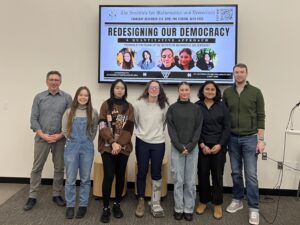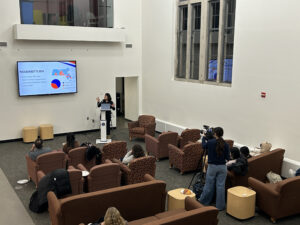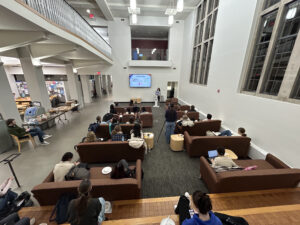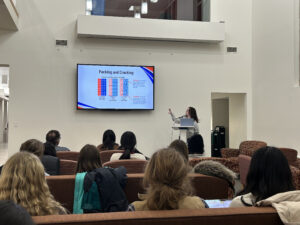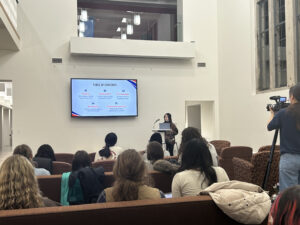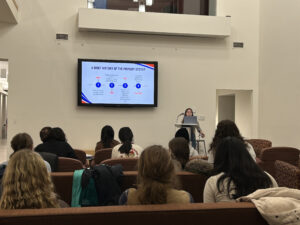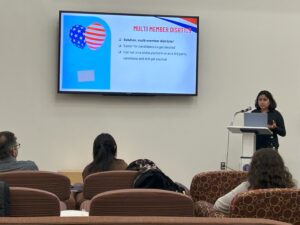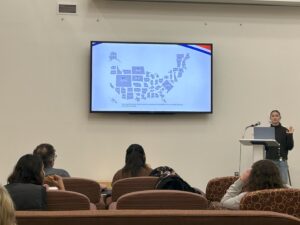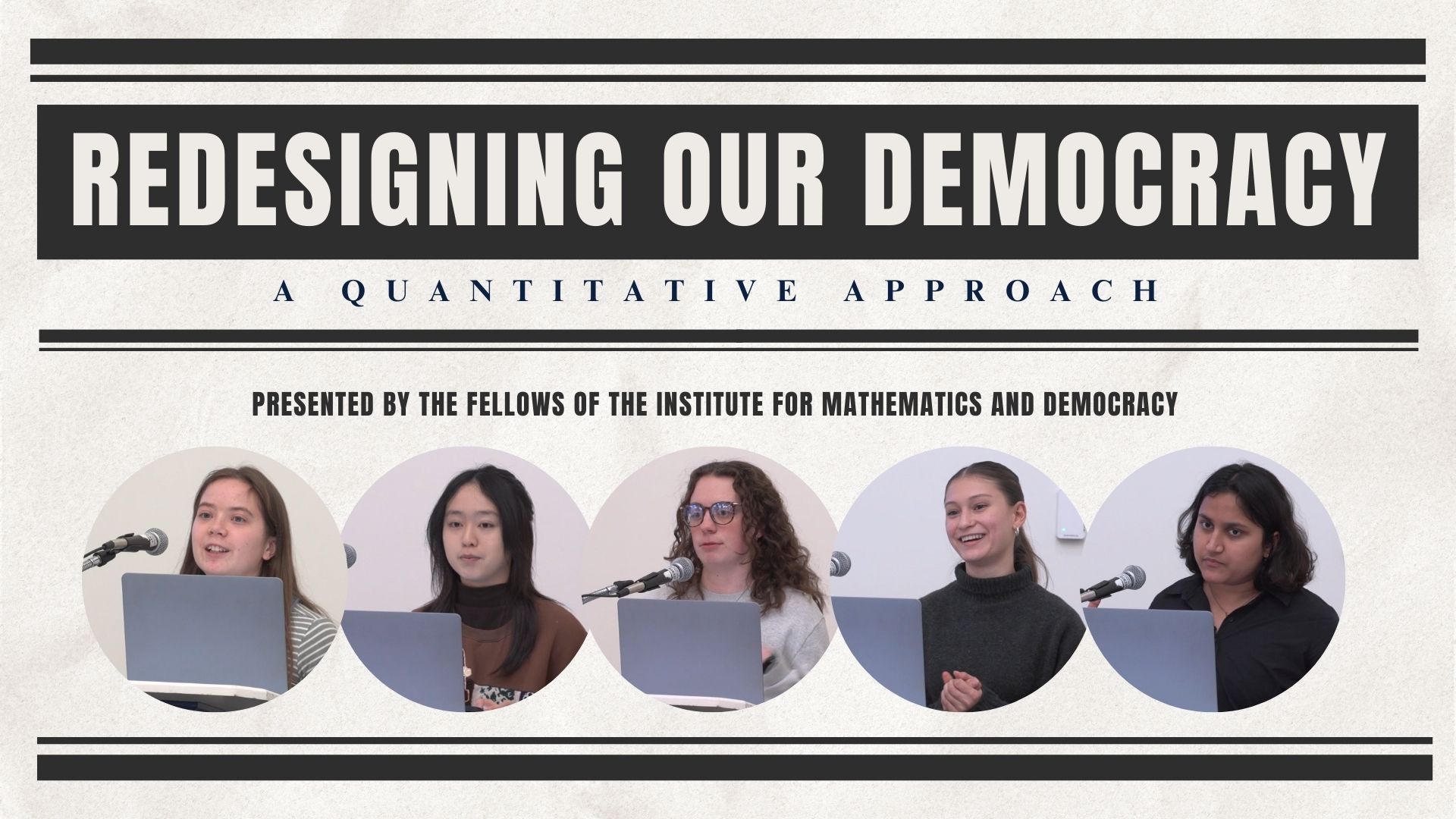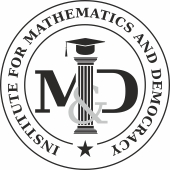Presentation Videos and Slides from “Redesigning our Democracy” by IMD Fellows
Exactly one month after the 2024 Election, IMD fellows engaged the Wellesley community in an impactful discussion around the mechanisms of our democracy. Through a series of short talks, they explored quantitative perspectives on these mechanisms and how they can better serve us.
Winnie Zhou presented on ranked choice voting, first giving the audience a rundown of the difference between plurality voting and ranked choice voting. She highlighted the characteristics of a fair election, analyzing different scenarios to compare the relative fairness of a ranked choice system compared to winner-take-all elections.
In her presentation on “The Problems with the Primaries,” Leah Valentiner walked the audience through the logistics of primary elections, beginning with the allocation of votes in the Republican and Democratic parties. She emphasized the lack of transparency in the primaries and how different the process can be depending on the state and party. Finally, she discussed ranked choice voting and open primaries as ways to make our elections more representative of public interest.
Cianna Salvatora focused on “Gerrymandering: How Redistricting is Reshaping Democracy,” first describing the mechanisms through which gerrymandering happens, before discussing the effects of gerrymandering on elections and what we can do about it. Through both real life and theoretical examples, Cianna illustrated how gerrymandering can change the outcome of elections. She concluded by giving an overview of current efforts to curb gerrymandering and make elections fairer.
Presha Goel shared with the audience the drawbacks of single-member districts in congressional elections and how multi-member districts may help to more accurately reflect the interests of voters and increase diversity of parties and political platforms represented in elections.
Finally, Arial Brookhart discussed the electoral college. She began by explaining the system’s history and how it works, then dove into what makes it an unideal mechanism for our presidential elections. As she noted, there have been five presidential elections where a candidate won the popular vote but was not elected; this most recently occurred in the 2016 election.
We are proud of our Fellows for their work in conducting research and giving these presentations. Thank you to all who attended! We look forward to continuing these discussions around how our democracy can better serve us and the math underlying our political systems.
Here are presenters’ slides and recorded talks:
- Slides and video for “Ranked Choice Voting” by Winnie Zhou
- Slides and video for “The Problems with the Primaries” by Leah Valentiner
- Slides and video for “Gerrymandering: How Redistricting is Reshaping Democracy” by Cianna Salvatora
- Slides and video for “Proportional Representation” by Presha Goel
- Slides and video for “Electoral College” by Arial Brookhart
